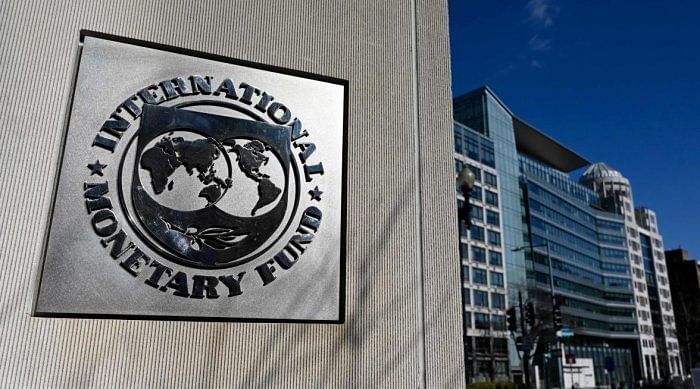
The International Monetary Fund (IMF) on Tuesday lowered India’s economic growth projection for the current financial year to 5.9 per cent from its earlier estimate of 6.1 per cent.
As per the IMF’s World Economic Outlook, the Indian economy is projected to grow by 6.8 per cent in the financial year ended March 2023.
Leading multilateral agencies, including the World Bank and the Asian Development Bank (ADB) have recently lowered India’s economic growth projection for the current financial year citing increase in borrowing costs and risks arising from global factors.
The IMF’s projection of India’s economic growth for the current financial year is the lowest among the forecasts by the multilateral agencies. The World Bank has pegged India’s GDP growth for the current fiscal at 6.3 per cent while the ADB has put it at 6.4 per cent.
However, in its monetary policy review announced on April 6, the Reserve Bank of India (RBI) hiked GDP growth projection for the current fiscal by 10 basis points to 6.5 per cent.
As per the IMF’s bi-annual World Economic Outlook report, India’s headline retail inflation is expected to ease to 4.9 per cent in 2023-24 from 6.7 per cent in the previous year.
In purchasing power parity terms, India’s growth in per capita output is projected to decline to 4.9 per cent in 2023-24 from 5.8 per cent in 2022-23.
The country’s current account deficit is estimated to come down to 2.2 per cent of GDP in the current fiscal from the projected 2.6 per cent in the financial year ended March 2023.
The IMF cut the world economic growth projection for 2023 by 10 basis points at 2.8 per cent. The global economic growth is estimated to accelerate to 3 per cent in 2024. This is 10 basis points lower than its earlier projection announced in January. The world economy expanded by 3.4 per cent in 2022.
Advanced economies are expected to see an especially pronounced growth slowdown, from 2.7 per cent in 2022 to 1.3 per cent in 2023.
“In a plausible alternative scenario with further financial sector stress, global growth declines to about 2.5 per cent in 2023 with advanced economy growth falling below 1 per cent,” the IMF said.
Global headline inflation in the baseline is set to fall from 8.7 per cent in 2022 to 7 per cent in 2023 on the back of lower commodity prices but underlying (core) inflation is likely to decline more slowly. Inflation’s return to target is unlikely before 2025 in most cases, it said.